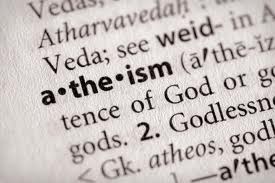The Afterlife: A Note on Numbers
Duane McClearn
Sept. 2019
Recently I was reflecting on a lengthy conversation I had during my college years with two guys who wanted to convert me to their brand of Christianity. Among other things they were convinced that when Judgment Day arrived, only a very select few would ascend to heaven. The overwhelming majority of the remainder of humanity would be flung into Hell, to suffer everlasting pain and anguish. A small slice of the population would be allowed to exist in a sort of limbo, neither Heaven nor Hell. Of this they were absolutely convinced. The number who would be allowed into Heaven, based on their reading of the Book of Revelations, was exact: 144,000.

I had a few questions. Who would get into Heaven? Not surprisingly, one requirement was to have received Jesus into one’s heart—in a very specific way, which would pretty much rule out anybody who was not a member of their particular church. People who refused Jesus and failed to meet the other requirements were locked out. I asked: What about people who had never been exposed to the Bible because of an accident of birth, for instance, they were brought up in rural India or China or some such place and didn’t get the message. Well, the response went, they couldn’t really be blamed for their ignorance, so they would go into a sort of limbo when Jesus returned to Earth. What about infants and toddlers who are too immature to understand language or the concept of Jesus. Well, they also couldn’t be held accountable, so they would go into limbo as well. What about mentally impaired individuals who can’t understand concepts of immortality, God, and so on. They too would be placed in limbo. And people who lived before Jesus existed? They also would pass into limbo. I don’t know if the two proselytizers with whom I was conversing were representing their church accurately, but I got them to admit that the number of people who would be sent into limbo, instead of being a small minority of all humanity, would actually be the bulk of it.
What about the number going to Heaven—the very precise number 144,000? Years ago when I spoke to the two Christians, they admitted that this was a small proportion of humans indeed. There were billions of people living at the time of the conversation and billions who had already lived, so that meant that the percentage of humans granted acceptance to Heaven was trivial. I think I estimated that it would be about one person in 50,000. Even if members of their own church were the only people allowed in, there would still be great competition. And here they were, trying to talk me in to joining their group; if I did so, I could potentially bump one of them out of a coveted slot.
Today I looked up some population numbers. There are now living on Earth about 7.5 billion people. It has been estimated by the Population Reference Bureau that 108 billion people have ever been born. The 144,000 figure represents about 2 of every 100,000 people currently living. And it corresponds to slightly more than 1 per million of the figure for people who have ever lived. It would appear that by this particular Christian group’s calculations, Heaven is a very selective place indeed. Incidentally, based on the number of current members of this church, and if only current members of this group are allowed into Heaven,only 2 percent of them will be admitted. If we take into account members who have already died, that would mean by their own reckoning only about 1 percentof them would be allowed into Heaven if Jesus returned today. And, like I said, this assumes that there will be no admittance for members of any other faith, for atheists (of course), or even for Christians of other denominations.
If the two proselytizers from my college days were correct about the limbo status for certain people after death, it would appear safe to conclude that, by their own calculations, the overwhelming majority (99% or more) of members of this particular church will be spending eternity in limbo with ignorant Chinese peasants, infants, and the mentally impaired.


